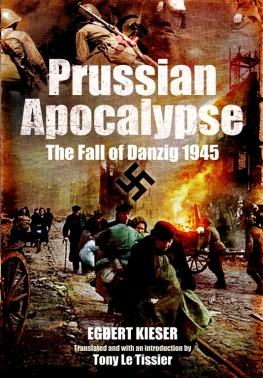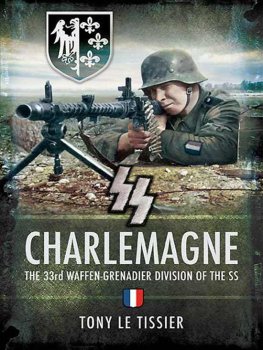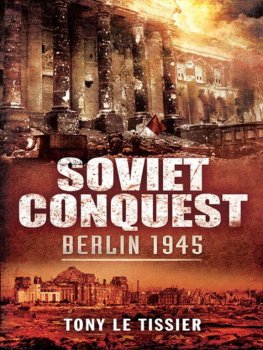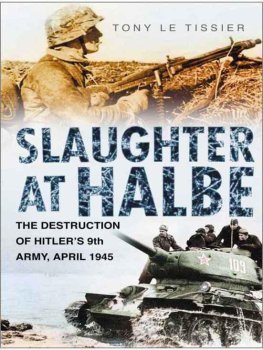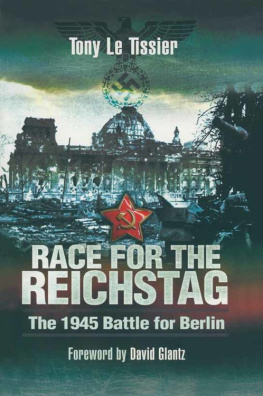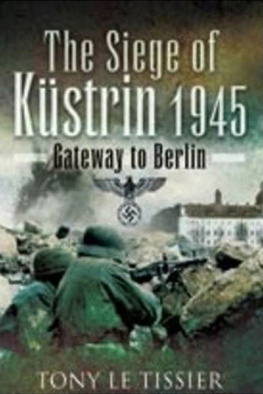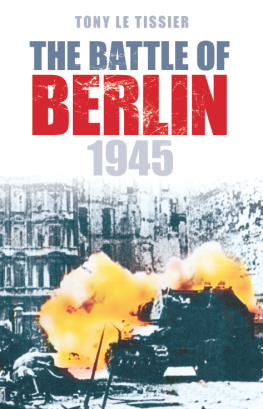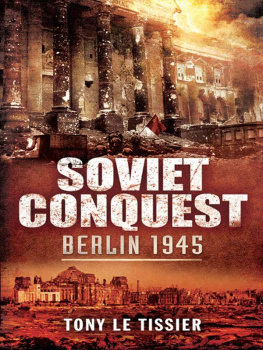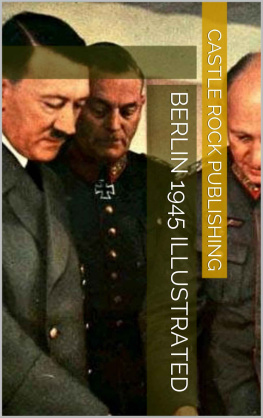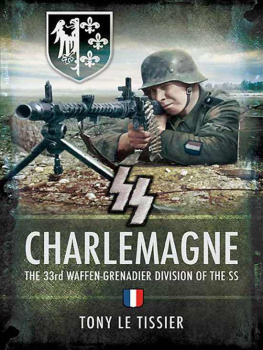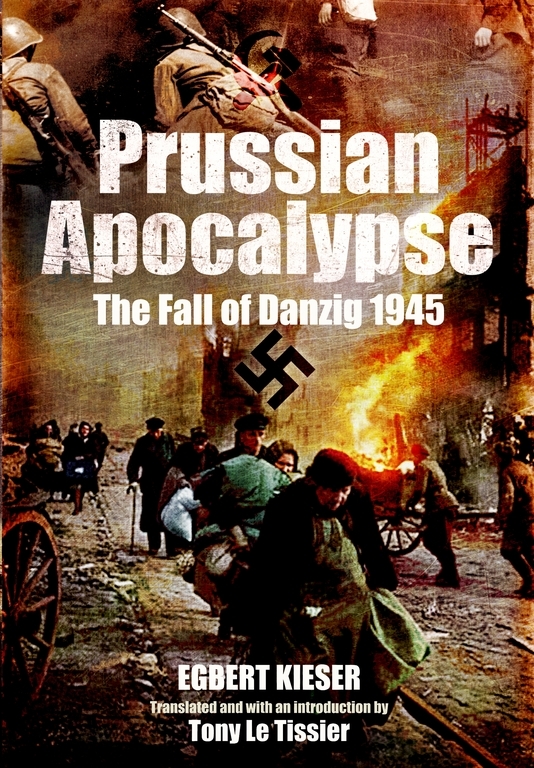Sources
Allgemeiner Schweizer Militrzeitschrift, No. 131, 1965
Bekker, Cajus, Flucht bers Meer, 1964
Berichte des Oberkommandos der Wehrmacht
Besymenski, Lew, Der Todt des Adolf Hitler, 1968
Boldt, Gerhard, Die letzten Tage der Reichskanzlei , 1947
Brustat-Naval, Fritz, Unternehmen Rettung, 1970
Bullock, Alan, Hitler a study in tyranny, 1952
Carell, Paul, Verbrannte Erde, Schlacht zwischen Wolga und Weichsel, 1966
DanzigerHaus - u. Heimatkalander , 1970
Der Grosse Vaterlndische Krieg, Moscow, Vol 5
Dieckert u. Grossmann, Der Kampf um Ostpreussen, 1960
Digest des Ostens, No. 6, 1963
Dobson, Christopher, Miller, John, Payne, Ronald, Die Versenkung der Wilhelm Gustloff, 1979
Domarus, Max, Hitler, Reden und Proklamationen , 1962-1963
Eckert, Gerhard, Besuch in Polen, 1974
Elbinger Hefte, No. 15, No. 24
Engel, Hans-Ulrich, Ostpreussen, wie es war, 1976
Faehrmann, Willi, Das Jahr der Wlfe , 1962
Fittkau, Gerhard, Mein dreiunddreissigstes Jahr, 1958
Fredmann, Ernst, Sie kamen bers Meer, 1971
Der Freiwillige, No. 10, 1964/11
George, Bernard, Les Russes arrivent , Paris, 1966
Gilbert, Felix, Hitler directs his war, 1950
Guderian, Heinz, Erinnerungen eines Soldaten, 1962
Helm, Rudolf, Volkssturm Saga, 1961
Holst, Niels von, Danzig ein Buch der Erinnerung, 1949
Hubatsch, Walther, Flchtlingstransporte aus dem Osten ber See, 1962
Hubatsch, Walther, Hitlers Weisung fr die Kriegsfhrung 1939 1945, 1962
Hmmelchen, Gerhard, Chronik des Seekrieges 1939 45, 1968
Just, Guenther, Alfred Jodl Soldat ohne Furcht, 1971
Kabath, Rudolf, Abwehrkmpfe am Nordflgel der Ostfront 1944 45, 1963
Kadelbach, Gerd, Die Stunde Null, 1962
Klss, Erhard, Reden des Fhrers, 1967
Koniev, Ivan S., Das Jahr fnfund vierzig, 1969
Kydd, Sam, For you the war is over, London, 1973
Lasch, Otto, So fiel Knigsberg, Kampf und Untergang, 1958
Lorck, Carl von, Ostpreussische Gutshuser, 1953
Mai, Joachim, Vom Narew bis an die Elbe, 1965
Merian Danzig, No. 4/7
Mitteilungsblatt Waffenring deutscher Pioniere, 1963
Murijew, D, Durchbruch der Schutzenverbande durch eine vorbereitete Verteidigung , 1959
Nehring, Walter, Die Geschichte der deutschen Panzerwaffe, 1969
Ostpreussen, No. 15/9, 1964
Schuffler, Hans, So lebten und starben sie, 1968
Schuffler, Hans, Der Weg war weit , 1973
Schoen, Heinz, Der Untergang der Wilhelm Gustloff, 1953
Schramm, Percy Ernst, Kriegstagebuch OKW ( Jan . 1944 22 . Mai 1945), 1961
Schroeder, Juergen, Zwischen Hela und Pillau, 1956
Sobczak, Kazimierz, Rocinik Elblaski II, 1963
Soviet Military Review, 1969, Nos. 4 & 5, 1975
Der Spiegel, No. 4, 1966
Thorwald, Jrgen, Ungeklrte Flle, 1950
Thorwald, Jrgen, Es began an der Weichsel, 1951
Thorwald, Jrgen, Das Ende an der Elbe, 1959
Tippelskirch, Kurt von, Geschichte des Zweiten Weltkrieges, 1956
Trevor-Roper, Hugh R., The Last Days of Hitler, 1947
Trevor-Roper, Hugh R., Grunfeld, Frederic V., Die deutsche Tragdie, 1975
Tschuikov, M, Aus den Erinnerungen In Dokumentation der Zeit, 1965
War Monthly, London, No. 30, 1976
Warlimont, Walter, Im Hauptquartier der deutschen Wehrmacht, 1962
Wilckens, Hans Jrgen von, Die grosse Not, 1957
Wilmot, Chester, The Struggle for Europe, 1952
Zeitschrift fr Militrgeschichte, 1965
Chapter 1
The Eastern Front
On Monday, 1st January 1945, Hitler released his New Year Appeal to the German People from his headquarters in Ziegenberg, near Bad Nauheim.
Millions of Germans of all professions and positions in life, men and women, boys and girls, even children, have taken up spade and shovel. Thousands of Volkssturm battalions have been raised or are in the process of doing so. Divisions have been newly raised. Volks Artillery Corps, mortar and assault gun brigades, as well as armoured units have been stamped out of the ground, fighter squadrons freshened up and equipped with new machines, and above all, in the German factories the German male and female workers have achieved amazing things. In this way, whatever our enemies have smashed will be rebuilt with superhuman industry and courage, and this will happen until our enemies find an end one day. That, my comrades, will be entered in history as the wonder of the 20th Century! A people that in the front line and at home suffer so immeasurably, endure and bear so much, cannot therefore ever be defeated. It will emerge stronger and more firmly uplifted out of this melting pot than ever before in its history.
But the people were at the end of their strength. The war was long since lost; on all fronts the German armies were having to give ground to their enemies. Defeat was only a matter of months, but soldiers and civilians still believed in the imminent release of wonder weapons that would avert disaster at the last minute, and the armed forces fought on determinedly. The chiefs of staff squabbled over the few available divisions: Colonel-General Guderian, chief of the general staff of the Army High Command, wanted to reinforce the eastern front at whatever cost, while Colonel-General Jodl, his counterpart in the Armed Forces High Command, did not want to release any men from the western front following the collapse of the Ardennes offensive. Hitler had chosen the west for his last heroic battle.
The east was no longer important to Hitler. When Colonel-General Guderian announced the latest figures about the colossal Russian advance between Memel and Budapest, Hitler exploded in anger, shouting at Guderian: That is the biggest bluff since the time of Jenghis Kahn!
On New Years Day he hosted his henchmen at a reception. The atmosphere was strained. They talked about the New Year offensive in Alsace and of a third blow that the greatest field marshal of all time would soon lead. Guderian stood silently by. He was waiting for the ceremony in which Luftwaffe Lieutenant-Colonel Rudel would receive the newly conceived Golden Oak Leaves with Swords and Diamonds to the Knights Cross of the Iron Cross together with his promotion to Colonel.
Once the award ceremony was over, Guderian drove back to his headquarters in Zossen. On the 4th January he started a several-day inspection journey of the eastern front. At Army Group South he established that the situation on the Hungarian front was far from stable. The superiority of the Russians was so great that General Whler could only supply a single division for the threatened northern or central sectors. SS-General Gille shrugged his shoulders: We no longer have the equipment we had in 1940. I need three men where formerly I managed with two or even one.
Guderian then drove to Krakau to see General Harpe, the commander in chief of Army Group A. Here, or at neighbouring Army Group North, the Russians would start their big winter offensive.
Harpe suggested saving troops by withdrawing 20 kilometres from the banks of the Vistula. Guderian said that he would pass it on to Hitler. But I must warn you, Harpe. This could have the worst personal consequences for you. If he sacks me, Harpe said quietly, I am only doing my duty.
That same evening Guderian telephoned the commander-in-chief of Army Group Mitte, Colonel-General Reinhardt, in his headquarters in Wartenburg near Allenstein. Guderian, the west Prussian, was so confident in the situation in East Prussia that he could save himself the journey. The 3rd Panzer Army was holding the area between the Memel and Gumbinnen, the 4th Army lay in eastern East Prussia in a protruding bow to the east that stretched from Gumbinnen via Fillipow to the Narev, from where its positions connected with those of the 2nd Army, covering the northern part of Poland.

